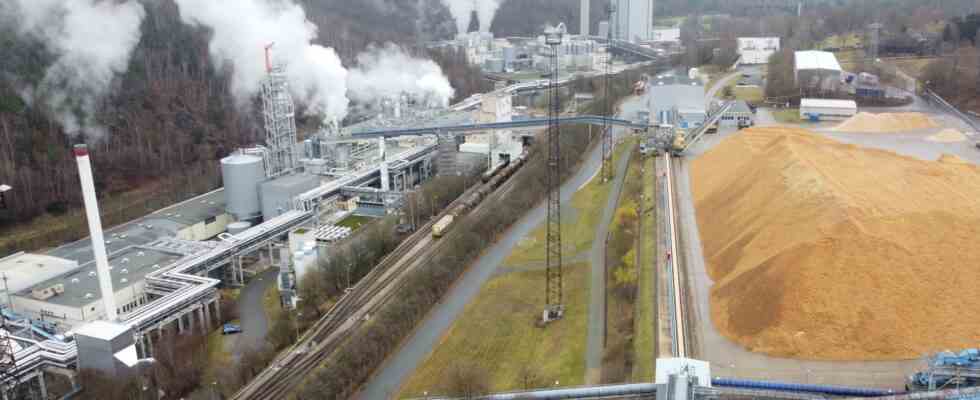Status: 03/13/2022 11:31 a.m
The exploding energy prices are causing problems for many sectors in Germany. This could lead to existential problems for some of the companies. Others accelerate their change processes.
The Kabel Premium Pulp & Paper company in Hagen: 560 employees produce high-quality paper for magazines, magazines and school books here. The paper is dried with steam, infrared heat and hot air. Nothing works here without natural gas. The company consumes more than 500 million kilowatt hours of electricity per year, says Martin Schröder, who is responsible for the energy sector at the paper manufacturer. That is about as many as all private households in a city of 500,000 inhabitants. And just like private households, Schröder now has to spend a lot more money on this electricity.
Company must pass prices on to customers
There have been days in the past few weeks when the price of energy has skyrocketed by up to 50 percent. “We’re experiencing a kind of small Weimar Republic right now,” says Schröder. The company has to pass the increased energy costs on to its customers through the price of paper. The other option would be to stop producing at all. So far, customers would go along with it. But Schröder does not know whether this will remain the case.
In Scandinavian countries like Finland, papermakers would power their machines with nuclear or hydroelectric power; as a result, they would have significantly lower energy costs and could produce more cheaply. In these countries, care was taken early on to become self-sufficient in energy issues. Unlike Germany, which is heavily dependent on imports of coal, oil and natural gas, Schröder said.
Chemical industry concerned about price increases
The chemical industry is also one of the so-called “energy-intensive branches of industry”. She, too, is concerned about the ever-rising prices, says Uwe Wäckers, deputy managing director of the NRW Chemical Industry Association. Around 30 percent of Germany’s chemical companies are based in North Rhine-Westphalia, including many medium-sized companies. They need carbon for their chemical products. It is currently still mainly obtained from fossil raw materials such as oil, gas or coal.
In order for production to run at all, the companies need energy from natural gas. “We depend on a stable, secure energy supply, 24 hours a day, around the clock, every day of the year,” says Wäckers. Unlike the paper manufacturers, the chemical companies cannot pass on their current additional costs for natural gas, oil and coal one-to-one to customers such as the automotive industry, he explains. “If we can no longer produce products at a certain price, but someone abroad can do it, then the market will shift there.”
Process towards renewable raw materials is still ongoing
Wäckers is convinced that sufficient fossil raw materials can be supplied to Germany both now and in the medium term. “But if the chemical industry can no longer produce, for example because there is not enough energy, there could be a domino effect,” he believes. Because the chemical companies are important suppliers for almost all industrial sectors.
It is true that the industry has made its way towards renewable raw materials. However, it will probably be many years before this process is completed. Wäckers could imagine that the current situation will bring dynamics to this conversion process again. “On the other hand, our companies are already working flat out.” In his opinion, large corporations like Bayer will certainly make it through the energy crisis. “However, not a few chemical companies have hardly any financial leeway and are already economically backed against the wall.” From his point of view, it could threaten the existence of one or the other medium-sized company.
Baked goods are becoming more expensive by up to ten percent
Bakeries are also affected by the expensive energy prices. Dortmund master baker Stefan Mühlen Bäumer needs electricity and gas to heat his three ovens. He currently pays 2,500 euros a month for electricity, which is 700 euros more in December. When it comes to gas, he even expects a price increase of 50 percent. In order to be able to continue operating his bakery and to be able to pay his 14 employees, he has made his baked goods more expensive. On average, customers here now pay ten percent more for bread, rolls and cakes than they did last year.
For Mühlenbaumer, the current price increases are an incentive to think about electricity alternatives. He would like to have a photovoltaic system installed on the roof of his bakery as soon as possible. “In view of the current energy prices, such an investment would pay for itself much more quickly, so it is becoming more and more interesting for us to do it,” says the master baker.

